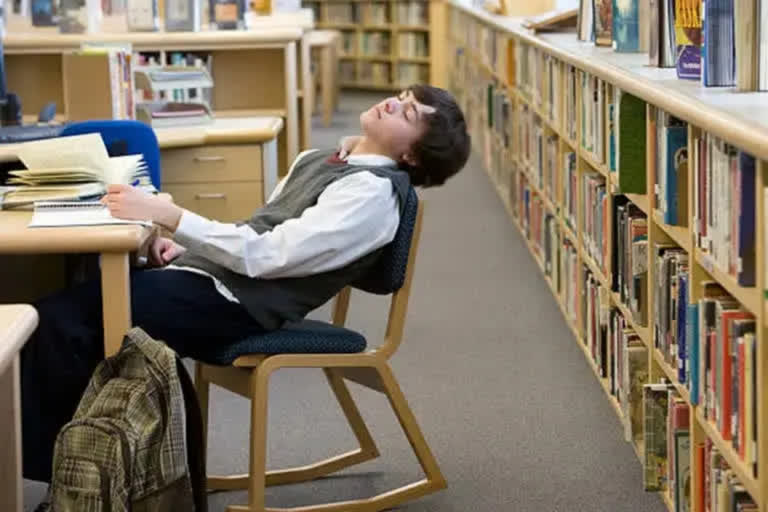Hyderabad: A new study at Carnegie Mellon University shows the impact of night sleep on a student's academic performance. For a lot of young adults, college is a time of transition. This may be the first time students experience the freedom to determine how to spend their time. But, this freedom comes with competing interests from academics, social events and even sleep.
A multi-institutional team of researchers conducted the first-ever study to evaluate how the duration of night sleep early in the semester affects first-year college students' end-of-semester Grade Point Average (GPA). Using Fitbit sleep trackers, they found that students, on average, sleep 6.5 hours per night, but negative outcomes accumulate when students received less than six hours of sleep. The results are available in the Proceedings of the National Academy of Sciences.
Previous studies have highlighted that total sleep is an important predictor for a broad range of health and performance outcomes. Sleep guidelines recommend teenagers should get at least eight to 10 hours of sleep every night. College students experience irregular and insufficient sleep. David Creswell, Professor in Psychology and Neuroscience at the Dietrich College of Humanities and Social Sciences, has led a team of researchers to evaluate the relationship between nightly sleep and GPA.
Also read: Why sleep is so important for your fitness?
"Animal studies have shown how critical sleep is for learning and memory," said Creswell. "Here we show how this work translates to humans. The less nightly sleep a first-year college student gets at the beginning of the school term predicts lower GPA at the end of the term, some five to nine weeks later. Lack of sleep may be hurting students' ability to learn in their college classrooms."
Past work with animals has confirmed that memories formed during the day are consolidated during sleep. When normal sleep patterns are interrupted, all the content learned during the day is lost. Extending this logic to students, the researchers were curious if interrupted or inadequate sleep could impair academic learning, and if this would be reflected in academic achievement. The study evaluated more than 600 students studying across five studies at three various universities.
The researchers have found that students who receive less than six hours of sleep experience a pronounced decline in academic performance. In addition, each hour of sleep lost corresponds to a 0.07 decrease in end-of-term GPA. "Once you start dipping below six hours, you are starting to accumulate massive sleep debt that can impair a student's health and study habits, compromising the whole system," said Creswell. "Most surprising to me was that no matter what we did to make the effect go away, it persisted."
The study was controlled for past academic performance, daytime napping, race, gender and first-generation status. Several other studies also controlled for the total academic course load. None of these factors affected the overall impact of night sleep on GPA. "A popular belief among college students is value studying more or partying more over nightly sleep," said Creswell. "Our work here suggests that there are potentially real costs to reducing your nightly sleep on your ability to learn and achieve in college. There's real value in budgeting for the importance of nightly sleep."



